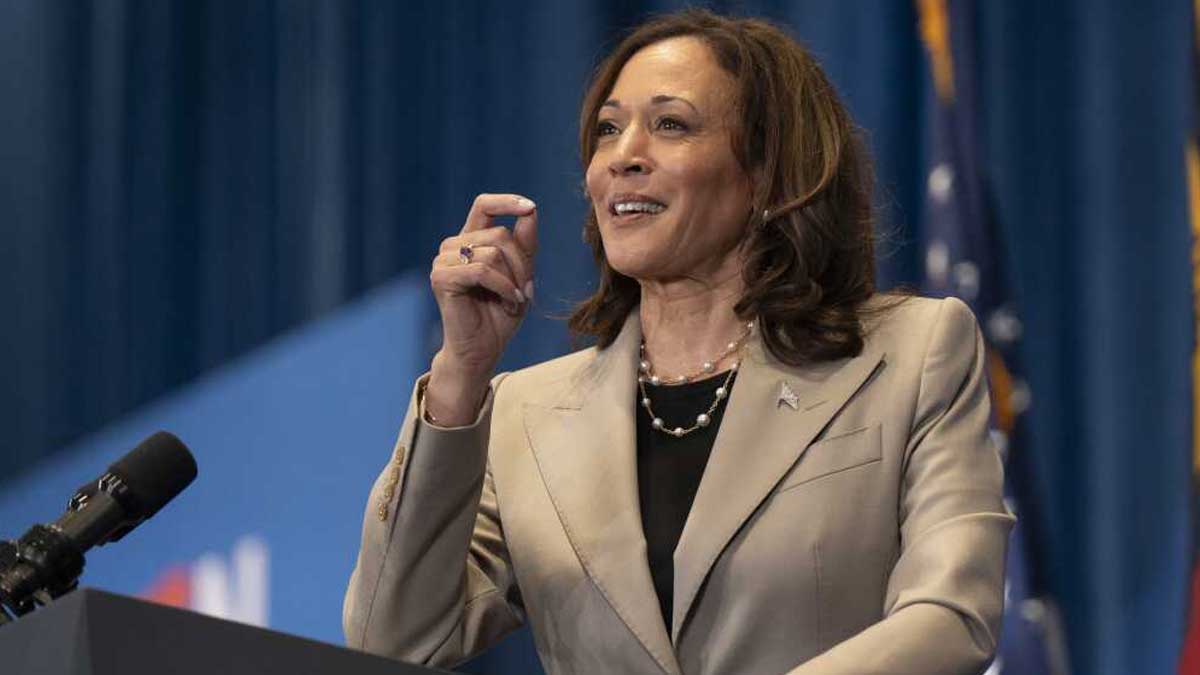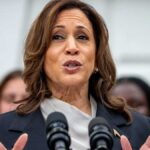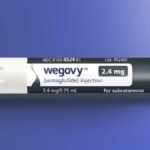- Home
- Billionaires
- Investing Newsletters
- 193CC 1000
- Article Layout 2
- Article Layout 3
- Article Layout 4
- Article Layout 5
- Article Layout 6
- Article Layout 7
- Article Layout 8
- Article Layout 9
- Article Layout 10
- Article Layout 11
- Article Layout 12
- Article Layout 13
- Article Layout 14
- Article Sidebar
- Post Format
- pages
- Archive Layouts
- Post Gallery
- Post Video Background
- Post Review
- Sponsored Post
- Leadership
- Business
- Money
- Small Business
- Innovation
- Shop
Recent Posts
Democratic Donors Split on Harris as Small Donations Surge

In the wake of President Joe Biden’s unexpected announcement on Sunday that he would be withdrawing from the 2024 presidential race, a significant rift has emerged among major Democratic donors regarding Vice President Kamala Harris’ candidacy. As some prominent figures quickly aligned themselves with Harris, urging the party to coalesce around her, others have advocated for a more thorough vetting process to explore alternative candidates before making a final decision.
Among the early backers of Harris is Reid Hoffman, co-founder of LinkedIn, who took to Twitter to endorse her candidacy. Hoffman praised Harris as “the right person at the right time” for the presidency, signaling his strong belief in her suitability for the role. Hedge fund billionaire George Soros, whose wealth is estimated at $6.7 billion, also expressed his support through a spokesperson and on social media, urging Democrats to rally behind Harris with the goal of defeating former President Donald Trump in the upcoming election. Soros’ son, Alex Soros, echoed this sentiment on Twitter, calling for a unified Democratic effort to back Harris.
However, the support for Harris is not unanimous among the party’s wealthy donors. Several influential figures, including Reed Hastings, co-founder of Netflix with a net worth of $4.6 billion, and Vinod Khosla, a venture capitalist worth $7.7 billion, have suggested that the party should consider other options before settling on Harris. Khosla has publicly advocated for an “open convention” where Democrats could evaluate a more moderate candidate. Similarly, Hastings has highlighted the importance of selecting a candidate who can secure victories in swing states, implying that Harris might not be the optimal choice for this strategy.
Michael Bloomberg, the former mayor of New York City with a staggering net worth of $104.7 billion, has also weighed in on the debate. Bloomberg, who had previously contributed $20 million to support Biden’s campaign, has cautioned against a hasty decision to replace Biden. He has recommended that the Democratic Party take the next few weeks to assess voter sentiment, especially in key battleground states, before making any final endorsement. Bloomberg’s call for patience reflects concerns about the potential implications of a rushed decision on the party’s overall strategy.
John Morgan, a prominent Democratic fundraiser, has been particularly critical of Harris. Morgan has stated he will not be fundraising for Harris, expressing doubts about her authenticity and condemning her previous 2020 presidential campaign as “horrible.” His comments underscore the divisions within the donor base regarding Harris’ viability as the Democratic nominee.
In contrast, key political organizations have shown strong support for Harris. EMILY’s List, a prominent group that supports female Democratic candidates, has committed to spending $20 million to bolster Harris’ campaign. Similarly, Way to Win, an organization that channels donations into crucial Democratic races, has also endorsed Harris, reflecting a growing alignment among some major political players.
On the grassroots front, support for Harris has been notably robust. The ActBlue fundraising platform reported a record $46.7 million in donations to Democrats on Sunday, marking the highest single-day fundraising total of the 2024 election cycle. In response to Biden’s withdrawal, his campaign quickly redirected support towards Harris, with Biden tweeting a link to the ActBlue contributions page and encouraging supporters to donate to her campaign.
Financially, the Biden-Harris campaign currently holds $91 million in funds. The campaign has updated its Federal Election Commission filings to reflect Harris as the new top candidate, rebranding the committee as “Harris for President.” This move is indicative of the campaign’s commitment to transitioning the focus from Biden to Harris.
As the Democratic Party prepares for its convention on August 19, Biden’s delegates are expected to formalize Harris as the nominee. This development makes the prospect of an open convention increasingly unlikely. Democratic delegations from several states, including South Carolina, Tennessee, and North Carolina, have already pledged their support for Harris. To secure the nomination, Harris will need the backing of approximately 1,970 delegates, the majority of whom are anticipated to support her given their allegiance to Biden.
The context of these developments includes rising concerns within the Democratic Party about Biden’s age and fitness for another term, which were exacerbated by his performance in the June 27 debate. Internal dissatisfaction with Biden led several major donors to pressure him to withdraw. Reports emerged that some donors, including Hastings and billionaire Mark Pincus, had called for Biden to step aside. Additionally, a group of donors threatened to withhold $90 million in planned contributions to the pro-Biden super PAC Future Forward unless a new candidate was put forward. In response, Biden endorsed Harris as his successor, and she has announced her intention to seek the nomination. By Monday morning, she had already secured endorsements from over 20 governors, more than 150 House Democrats, and over 30 Democratic senators, further consolidating her position as the leading candidate for the Democratic nomination.
Recent Posts
Categories
- 193cc Digital Assets2
- 5G1
- Aerospace & Defense46
- AI37
- Arts3
- Banking & Insurance11
- Big Data3
- Billionaires449
- Boats & Planes1
- Business328
- Careers13
- Cars & Bikes76
- CEO Network1
- CFO Network17
- CHRO Network1
- CIO Network1
- Cloud10
- CMO Network18
- Commercial Real Estate7
- Consultant1
- Consumer Tech180
- CxO1
- Cybersecurity68
- Dining1
- Diversity, Equity & Inclusion4
- Education7
- Energy8
- Enterprise Tech29
- Events11
- Fintech1
- Food & Drink2
- Franchises1
- Freelance1
- Future Of Work2
- Games141
- GIG1
- Healthcare78
- Hollywood & Entertainment186
- Houses1
- Innovation42
- Investing2
- Investing Newsletters4
- Leadership65
- Lifestyle11
- Manufacturing1
- Markets20
- Media193
- Mobile phone1
- Money13
- Personal Finance2
- Policy567
- Real Estate1
- Research6
- Retail1
- Retirement1
- Small Business1
- SportsMoney33
- Style & Beauty1
- Success Income1
- Taxes2
- Travel10
- Uncategorized8
- Vices1
- Watches & Jewelry2
- world's billionaires418
Related Articles
Trump Moves $4B Stake in Truth Social Parent, Stock Drops 6%
Donald Trump recently transferred his 57% stake in Trump Media & Technology...
By 193cc Agency CouncilDecember 20, 2024House Rejects Trump-Backed Funding Bill, Shutdown Looms
The U.S. House of Representatives rejected a new government funding bill on...
By 193cc Agency CouncilDecember 20, 2024Trump Named Time’s Person of the Year for Second Time
On Thursday, Time magazine honored Donald Trump as its “Person of the...
By 193cc Agency CouncilDecember 12, 2024Meta Donates $1 Million to Trump’s Inaugural Fund
Meta, the parent company of Facebook and Instagram, has confirmed a $1...
By 193cc Agency CouncilDecember 12, 2024















Leave a comment